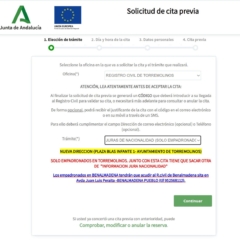Income Taxes in Spain 2025

If you’ve made the move to Malaga or if you’re planning to, sooner or later you’ll need to deal with paying income taxes in Spain. It’s not the most thrilling topic, I know, but understanding how personal taxation works here will save you time, stress, and possibly a fine or two. Let’s walk through who has to pay income taxes in Spain, when and how much, so you can have a better idea of what is coming your way. Spoiler: taxes are high in Spain!
Personal income taxes in Spain – called IRPF (Impuesto sobre la Renta de las Personas Físicas) – has both national and regional components and makes distinction between income and savings gains. Confusing? Not for long. Let’s see it bit by bit, starting with who has to pay income taxes in Spain, which is… the tax resident.
Who is a Tax Resident in Spain?
Let’s start with a crucial concept: tax residency. In Spain, your tax obligations depend on whether you’re considered a resident for tax purposes; it has nothing to do with having or not a TIE, a NIE or any residency related document, nor to your address. The main thing to be considered a resident for taxes purposes – a tax resident – is to spend more than 183 days in Spain during the calendar year (January to December), regardless of legal or documental situations.
This includes non-lucrative visa (NLV) holders, for instance, even though they cannot (legally) work in Spain. NLV holders are tax residents in Spain, as are pensioners, digital nomads, freelance workers, etc. But there’s more to it.
If your main economic interests are based in Spain, or if your spouse and minor children live in Spain, you can also be classified as a tax resident – even if you didn’t quite hit that six-month mark, according to the Spanish tax agency, Agencia Tributaria (that hat a English version!!! – all links to the Spanish tax office in this post are to texts in English). Once you’re considered a resident, you’re taxed on your worldwide income; if you’re a non-resident, you’re only taxed on income sourced in Spain. It’s a big distinction and worth being clear about.
Above: the tax office in Madrid.
Income Taxes in Spain
In Spain, we are taxed differently depending on the origin of the money. Earnings such as salary, pensions (foreign or local) and other work-related payments are taxed by the general base, while income obtained through capital gains, such as dividends, interests or the profits on selling stock or a property (anywhere in the world) are taxed under savings taxes, as are cryptocurrencies.
Both general base and savings incomes are subdivided in two as well: the national taxes – which is the same for everybody in Spain – and the local taxes, which can vary from one Autonomous Community to the next. These divisions result in four layers of taxes, which are summed to get to how much taxes are owed to the tax agency. Let’s see each of them with their values for 2025 (when we are paying income tax related to earnings in 2024):
General Base Tax Rates – national component
– Up to €12.450: 9,5%
– From €12.450,01 to €20.200: 12%
– From €20.200,01 to €35.200: 15%
– From €35.200,01 to €60.000: 18,5%
– From €60.000,01 to €300.000: 22,5%
– From €300.000,01: 24,5%
Source: Agencia tributaria – General taxable base
As you can see, it’s a progressive system; so, someone that earns €25.000 per year will pay 9,5% on the first €12.450, then 12% on the difference between €20,200 and €12.450, then 15% on the rest.
There is a minimum level that is not subject to taxes. It is variable, though; it depends on the taxpayer’s age and number of dependents, as well as on the declaration being that of an individual or of a couple. As reference, examples that are part of the tax agency manual often include a minimum (non-taxable) of around €5.500.
General Base Tax Rates – regional component
Each Autonomous Community in Spain determines how much they are going to tax their residents. I have included below the numbers for Andalusia, the community where the Costa del Sol is located.
– Up to €13.000: 9,5%
– From €13.000,01 to €21.100: 12%
– From €21.100,01 to €35.200: 15%
– From €35.200,01 to €60.000: 18,5%
– From €60.000,01: 22,5%
I’ll leave you the link for the tax rates applied by each one of the communities. 😉 You’ll see that we can’t really say which one charges more; it really depends on the amount of income.
The same observations made for the national part apply here: the system is equally progressive for the communities (for all of them) and there is a variable minimum non-taxable to be applied to part of the income.
Savings Tax Rates – national component
These are the taxable ranges for the savings gains on national level:
– Up to €6.000: 9,5%
– From €6.000,01 to €50.000: 10.5%
– From €50.000,01 to €200.000: 11.5%
– From €200.000,01 to €300.000: 13,5%
– From €300.000,01: 14%
Savings Tax Rates – regional component
The savings tax rates for the communities are all the same, and of identical amount as that shown in the national component:
– Up to €6.000: 9,5%
– From €6.000,01 to €50.000: 10.5%
– From €50.000,01 to €200.000: 11.5%
– From €200.000,01 to €300.000: 13,5%
– From €300.000,01: 14%
Example of income taxes in Spain
Let’s cap this part with an example, to make things more real. Suppose Sam lives in Malaga and earned €30.000 last year in salaries, plus €2.000 from dividends. How much should Sam pay in taxes?
General base, national = €3.582,75 (€12.450 x 9.5% + €7.750 x 12% + €9.800 x 15%)
General base, regional = €3.542,00 (€13.000 x 9.5% + €8.100 x 12% + €8.900 x 15%)
Savings, national = €190,00 (€2.000 x 9.5%)
Savings, regional = €190,00 (€2.000 x 9.5%)
Considering a minimum non-taxable of €5.500, we can deduct €522,50 (€5.500 x9.5%) from each of the general bases.
minimum non-taxable = 522,50 x 2 = € 1,045,00
Reaching a total payable amount of €6.459,75 in income taxes; effectively, a bit above 20% of everything Sam gained in a year. Poor Sam.
Want another example? Check this one, done by the tax agency themselves!
Above: the tax office in Seville, in a great location. 🤷♀️
Deductions
Spain offers several deductions and allowances that can reduce your overall taxable income. Besides the family and age-related discounts we mentioned before, social security contributions – the payments you make every month if you’re employed or self-employed and paying into the system – are also deductible. Contributions to pension plans also qualify. If you’re part of a union or professional body, some of the fees can be deducted. And if you’ve made donations to recognized charities, you may be eligible for a tax credit.
When to declare income taxes in Spain
Tax season in Spain runs from early April to the end of June, but the exact dates can vary a little. For the 2024 tax year, returns need to be submitted between April 2 and June 30, 2025. Most people file online using the Agencia Tributaria’s system, which is reasonably user-friendly, but hiring a gestor (a local tax advisor) is common practice and often well worth the expense.
Property taxes: IBI and plusvalía
This has nothing to do with income taxes, but we should talk a bit about property taxes, just because they can be high, and because many new residents are caught by surprise.
If you buy a home in Spain, you’ll need to budget for the annual property tax known as IBI (Impuesto sobre Bienes Inmuebles). It’s set by the local municipality and varies depending on the assessed value of the property; if you later sell the property, you’ll be liable for capital gains (savings tax) on the profit and for the Plusvalía Municipal, a separate tax on the increase in land value during your ownership. These local taxes can catch you off guard if you’re not prepared, so it’s best to factor them into your long-term financial planning.
Related post:
How to buy a house in Spain like a pro
Above: the tax office in Malaga.
Overseas assets
A critical requirement for Spanish tax residents is the obligation to declare overseas assets using a form called Modelo 720. If you hold foreign assets worth over €50,000 – including bank accounts, stocks, or real estate – you must report them. The penalties for non-compliance used to be notoriously harsh, though EU courts have forced Spain to soften some of the rules. Even so, it’s a good idea to take this seriously and get help from a tax professional if needed.
Related post:
The best way to go about money transfers & banking in Spain
Double taxation avoidance
Spain has signed agreements to avoid double taxation with several other countries. This means that if you are still a resident in another country when you become a resident in Spain, or if by any reason you are also liable to pay taxes elsewhere (hello USA!), you can deduct what you pay as income taxes for one country from what you should paying to the other.
You fill in your tax returns to the country that requires it first, and then you include the proof of that payment in the tax returns to the second country. I think this is easier said than done, though. If you are in this situation, it is ideal that you consult with an accountant familiar with tax regulations in both countries.
A bit of relief: the Beckham Law
Now, let’s cover something a bit more uplifting: the Beckham Law. This special tax regime was originally introduced to attract professional footballers but is now available to many types of foreign workers moving to Spain. If you qualify, you can opt to pay a flat tax rate of 24% on your Spanish-sourced income for up to six years, which can be a significant tax break—especially if you’re earning over €60,000 a year.
You’ll need to apply within six months of registering with Spanish social security, and it doesn’t apply to everyone (pensioners and freelancers are usually excluded). Still, it’s worth checking whether you might qualify. Check here the official text of the Beckham law and here an easier text explaining it.
Above: the tax office in Marbella.
Other useful sources
Besides the site of the Agencia Tributaria, linked many times along this post, and a few other sources linked along the text, I also used Blevins Franks and SpainAccountants sites to clarify different points regarding taxes. I opted to link them here, because they may help you too.
Conclusion
A few final notes: make sure you do not move to Spain before July 15 or so – this way you don’t have to pay taxes in Spain for that year. This is especially important if you sell your home abroad before moving to Spain, so that you don’t need to share your capital gains with the Spanish state.
Also, keep good records – everything from pay slips to rent receipts and donation certificates. If you’re self-employed (autónomo), hold onto invoices and expense documents for at least five years. Tax audits in Spain are not frequent, but they do happen. And as laws change often, it’s a good idea to check for updates regularly or to work with an advisor who will do that for you.
Living in Spain comes with plenty of perks – sunshine, beaches, a rich cultural life – but it doesn’t come cheap when it comes to taxes. Understanding the basics of how personal taxes work here means you’ll have fewer surprises and more peace of mind. With the right preparation, taxes don’t have to be too scary – but they will be hurtful anyway, I’m sorry. I share your pain. Just another part of setting up life in a place you will, or have already, come to love.








